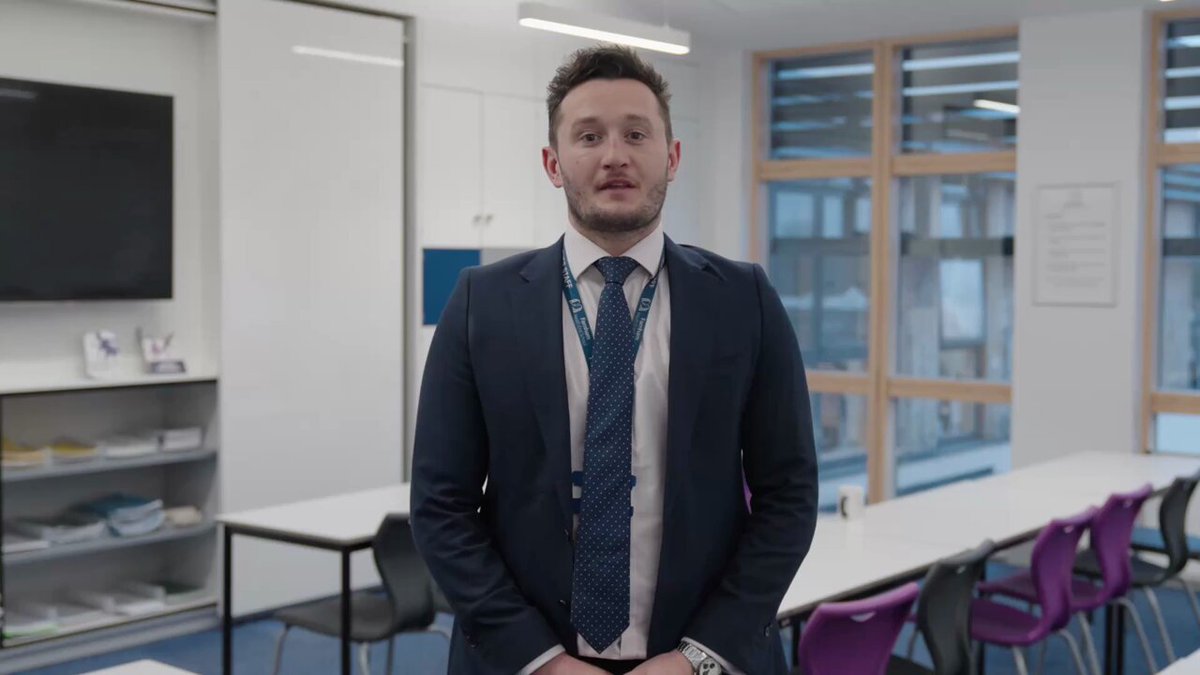 @TeamFHES - 6/01/2026Live at Heath End School: Wallace & Gromit performed by the Farnborough Concert Orchestra.
Saturday 7th Feb at 2:00 PM, with another at 4:00 PM
Tickets are strictly limited to just 200 seats each. Book early to avoid disappointment.
Get tickets: farnboroughconcertorchestra.…
@TeamFHES - 6/01/2026Live at Heath End School: Wallace & Gromit performed by the Farnborough Concert Orchestra.
Saturday 7th Feb at 2:00 PM, with another at 4:00 PM
Tickets are strictly limited to just 200 seats each. Book early to avoid disappointment.
Get tickets: farnboroughconcertorchestra.…- Home
- Statutory Information
- Careers Overview
- Information for Students/Parents
Information for Students/Parents
POST 16 OPTIONS
Young people must stay in some type of education or training until they are 18. There are many options available when young people turn 16, and they should look at what option best suits them, their situation, strengths and interests.
FURTHER EDUCATION COLLEGE
Further education (abbreviated to FE) includes any study after secondary education that’s not part of higher education (that is, not taken as part of an undergraduate or graduate degree).
FE colleges offer a much wider range of courses than at sixth form colleges or schools, ranging from basic English and maths to Higher National Diplomas (HNDs) and the new T-Levels.
Most do offer some A-levels, the same as sixth form colleges and schools, but also have a huge number of other qualifications available in different subjects and at different levels.
Qualifications Levels
Level 1 qualifications are fairly basic, building confidence and providing an introduction to a subject, industry or area of work. They include, for example, NVQ Level 1, BTEC Introductory Certificates and OCR Nationals which are roughly equivalent to GCSEs gained at grades 1 to 3. You will need qualifications at this level before progressing to level 2.
Level 2 qualifications give a deeper understanding of a subject or area of work. They include, for example, NVQ level 2 and BTEC First. They are roughly equivalent to GCSEs at grades 4 to 9. Many employers like young people to have a Level 2 qualification as a minimum.
Level 3 qualifications include A and AS-levels, T-Levels, NVQ Level 3, BTEC Nationals, Advanced and Progression Diplomas. This level is almost always required for entry to university and many employers will be looking for Level 3 in applicants for more technical or supervisory roles.
Levels 4 to 8 may also be available in your local college but are classed as ‘higher’ rather than ‘further’ education. They include Foundation degrees, HND/HNC courses, Honours degrees and postgraduate or professional qualifications at a high level.
Not all colleges, however, will offer the same variety of subjects and courses, so it’s very important to check carefully what is available locally.
SIXTH FORM COLLEGE/SCHOOLS
Sixth Form colleges offer a wide range of A-Levels – an academic qualification.
They may also offer single award BTEC qualifications which students can mix and match with A-Levels. For example, a student may take two A-Levels and one BTEC.
School Sixth Forms also offer A-Levels but will probably not have such a wide range of subjects as a Sixth Form College.
A-LEVELS
- Description: Study a subject you took at GCSE in greater depth or choose a new one like economics, law or psychology. You could take 3 broad subjects you are interested in to keep your career options open or choose ones you need for a specific career.
- Duration: 2 years.
- Assessment: Mostly exams at the end of the course.
- Level of study: 3.
- Entry requirements: Course dependent, typically 5 GCSEs Grade 9-4 (usually including English and maths).
- Work experience: Usually 1 week during year 12.
- Leads to: University/college, higher and degree apprenticeships, work.
OUR LOCAL SIXTH FORM COLLEGES/SCHOOLS ARE:
The Sixth Form College, Farnborough
All Hallows Sixth Form College
QUALIFICATION TYPES
Technical and Vocational Qualifications
These qualifications include BTECs and NVQs and are available in a wide range of subjects.
However, the government is looking to cut a lot of these qualifications in favour of the new T-Levels (see below). There is strong opposition to this move as many students have benefitted from these qualifications which open doors to jobs.
- Description: Qualifications which teach you how to do tasks specifically related to the industry and role you want to be involved in.
- Duration: Course dependent.
- Assessment: Can include coursework, skills tests and exams.
- Level of study: 1+
- Entry requirements: Course dependent.
- Work experience: Course dependent.
- Leads to: Apprenticeship, work, college or university.
T-Levels
The T-Levels are new qualifications that are being introduced in most of our local FE colleges now. To find out the subjects they are available in, visit the college websites.
- Description: Designed in partnership with employers to give you the skills and knowledge to get on in the workplace. Combines classroom learning with industry placements to prepare you for skilled work or higher level study. 1 T-Level is the equivalent of 3 A levels.
- Duration: 2 years.
- Assessment: Exams, projects and practical assignments.
- Level of study: 3.
- Entry requirements: Course dependent.
- Work experience: At least 45 days on industry placement.
- Leads to: University/college, higher and degree apprenticeships, work.
OUR LOCAL FE COLLEGES ARE:
Farnborough College of Technology
Prospectuses for all colleges are available in the school library
FE / FURTHER EDUCATION FUNDING
Many courses in reading, writing and basic maths are free, and you may not have to pay for tuition if you’re under 24 and studying for your first qualification equivalent to GCSE or A-level.
FE / further education students may be able to get help with the costs of:
- Their course
- Their day-to-day living costs
- Childcare for any dependents
Depending on your circumstances and the subject you’re studying, you may qualify for:
- Discretionary Learner Support
- Residential Support Scheme
- Care to Learn
- Dance and Drama Awards
- Professional and Career Development Loans
- 16 to 19 Bursary Fund
Please see FHES Post-16 Options Booklet for details of all our local options
APPRENTICESHIPS
What is an apprenticeship?
An apprenticeship is a genuine job and under all circumstances an apprentice will be employed from day one. Apprenticeships combine practical training in a job with study.
An apprentice will:
– work alongside experienced staff
– gain job-specific skills
– earn a wage and get holiday pay
– be given time for study related to their role (the equivalent of one day a week)
What levels are there?
All apprenticeships include elements of on the job and off the job training, leading to industry recognised standards or qualifications. Some apprenticeships also require an assessment at the end of the programme to assess the apprentice`s ability and competence in their job role.
The levels range from Intermediate (Level 2) through to Degree apprenticeships (Level 7) equivalent to a Master's Degree.
What do apprentices earn?
The national minimum wage (NMW) for apprentices is currently £5.28 per hour. The apprentice NMW applies to apprentices aged under 19 or aged 19 or over and in the first year of their apprenticeship. Apprentices aged 25 and over, and not in the first year of their apprenticeship, will be entitled to the National Minimum Wage. For more information, click here
Entry requirements
Apprenticeships are available to anyone over the age of 16, living in England and
have no upper age limit.
If you want to find an apprenticeship, it is advisable to create an account on the national apprenticeships website, and you can then search for suitable apprenticeships:
Government Website - Find an Apprenticeship
All adverts will clearly state what the entry requirements are for the apprenticeship being advertised. There will be different entry requirements depending on the industry, job role and apprenticeship level. When you create an account, you will receive notifications of suitable apprenticeships.
Apprenticeships
- Description: Intermediate, advanced higher and degree apprenticeships combine practical on-the-job skills training with off-the-job learning. You'll get training that isrelevant to your job and be paid a salary. Start at a level to suit you, with support if you have special needs or a disability.
- Location: You’ll spend 80% of your time in the workplace and 20% off-the-job with some study in a college, training centre or Institute of Technology (IoT)
- Duration: A minimum of 1 year.
- Entry requirements: Will be dependent on the industry, job role and apprenticeship level.
- Qualifications: Apprenticeship certificate, diploma, degree and masters depending on level.
- Leads to: Work, next level of apprenticeship, further education, higher education.
Traineeships
A traineeship is a work placement programme designed to prepare participants for the world of work and give them a leg up towards an apprenticeship or starting a role. Traineeships are available to motivated teenagers and young adults between 16 and 24, who are struggling to enter the world of work.
- Description: A course that includes a work placement that will get you ready for an apprenticeship or a job. You’ll get work experience and some help to apply for your next steps. You can also improve your maths and English skills. You’ll get work experience and some help to apply for whatever you do next.
- Location: You’ll spend a minimum of 70 hours in a work placement with the rest of your time in college or a training centre.
- Duration: 6 weeks to 1 year.
- Entry requirements: You need to be aged between 16 to 24 or up to 25 with an Education Health and Care Plan with no higher than a level 3 qualification.
- Qualifications: English, maths, digital and work-related qualifications.
- Leads to: Apprenticeship, further education, work.
Another very useful website to look at is Amazing Apprenticeships:
HIGHER EDUCATION
WHAT IS HIGHER EDUCATION?
UK Higher Education (HE) offers a diverse range of courses and qualifications, such as first degrees, Higher National Diplomas (HNDs), and foundation degrees. It includes any qualification at Level 4 and above. A BA or BSc (Hons) degree is a Level 6 qualification.
Going to university is a great way to expand your knowledge, meet new people and enjoy new experiences.
UNIVERSITY DEGREE
- Description: An academic course that's usually studied at a higher education institution. Learn through lectures, seminars, group projects and independent study. There's funding available to support you and you can study full or part- time.
- Location: At a university, college or online. You could go away to study, stay local or go abroad.
- Duration: 3 to 4 years.
- Entry requirements: Universities set their own entry requirements. You'll usually need A Levels or equivalent qualifications.
- Qualifications: Ordinary or honours degree.
- Leads to: Postgraduate taught or research degrees, professional qualifications, graduate employment.
EMPLOYMENT OPTIONS
EMPLOYMENT: GET STRAIGHT INTO WORK
When you reach 18, you are able to go out into the workplace and get a job. There are various ways to do this.
INTERNSHIPS
- Description: A period of work experience where you can try out a job and get to know an industry.
- Location: Workplace.
- Duration: 1 week to 1 year.
- Entry requirements: Age 16+.
- Qualifications: N/A.
- Leads to: Work, university/college, traineeships, apprenticeship.
GET A JOB
- Description: Get straight into the working world to start earning. You'll need an up-to-date CV and cover letter.
- Location: Workplace or from home.
- Duration: Dependent on job offer.
- Entry requirements: Requirements differ between employers. You may need qualifications or experience for some jobs.
- Qualifications: N/A.
- Leads to: Work.
START A BUSINESS
- Description: Becoming an entrepreneur can be exciting, but think carefully about your ideas and make a solid business plan.
- Location: Likely to start at home or shared office.
- Duration: N/A.
- Entry requirements: You may need special skills, qualifications or experience before you can start a business. There may also be start-up costs.
- Qualifications: N/A.
Leads to: Work.













